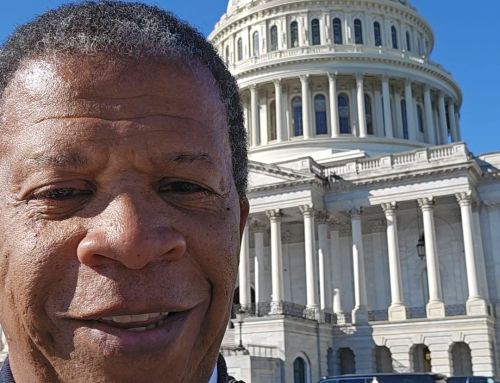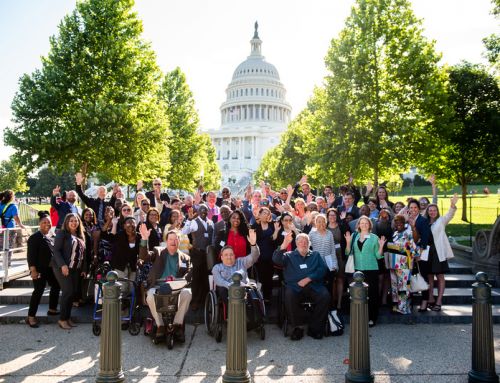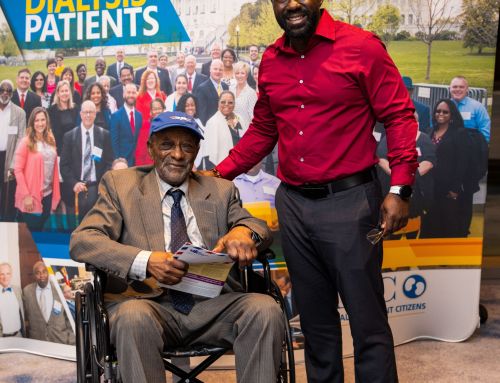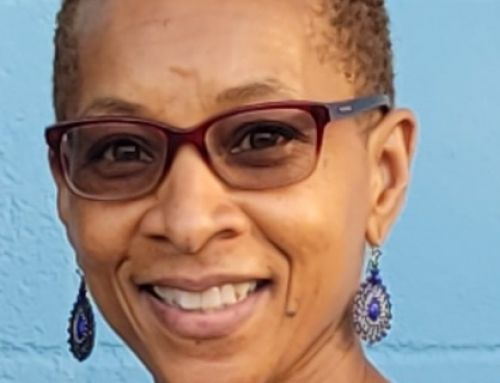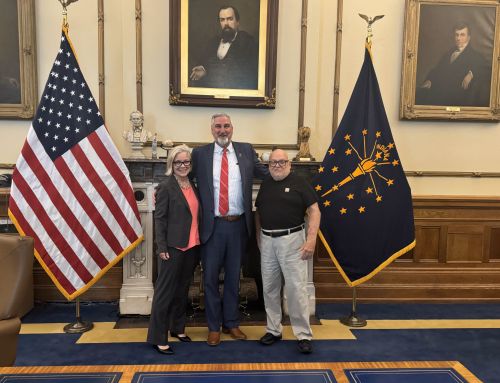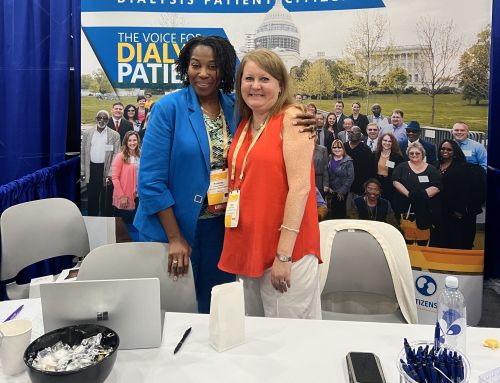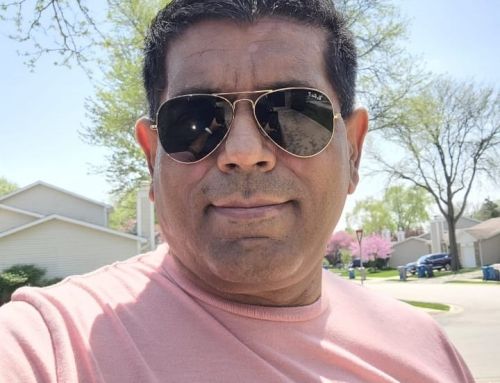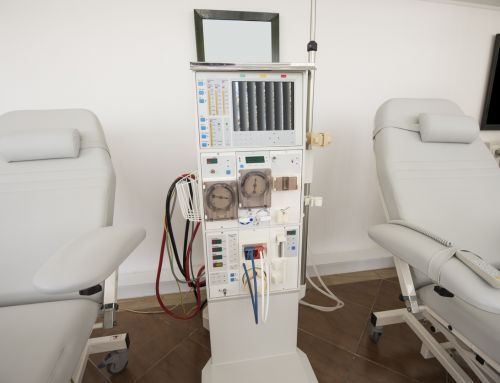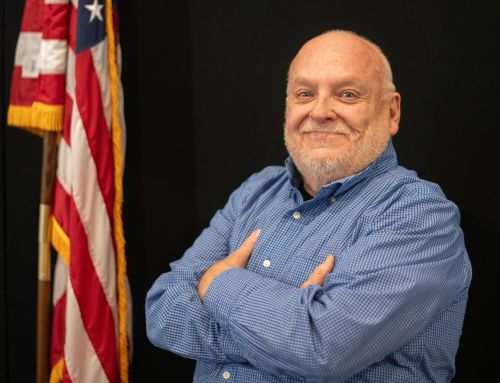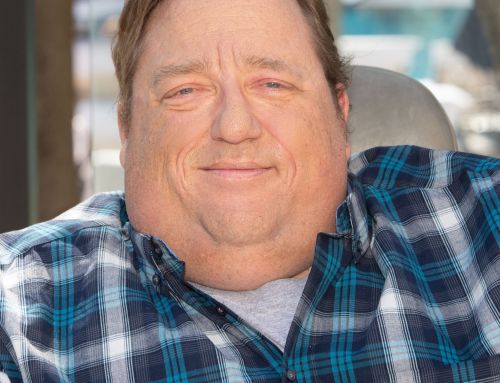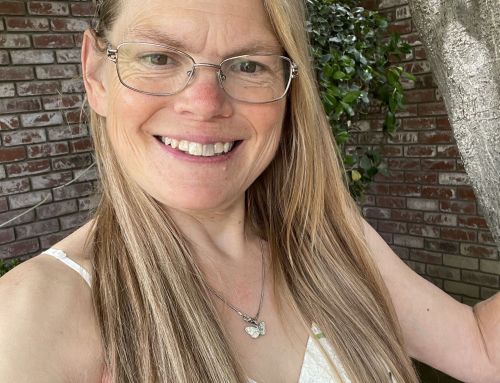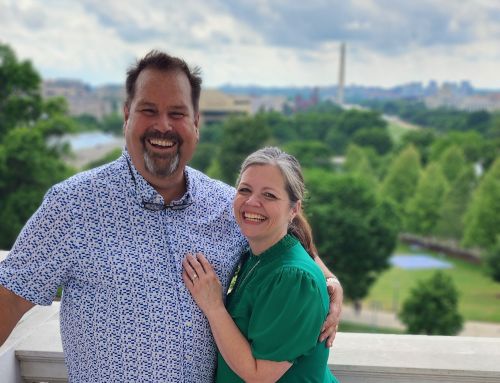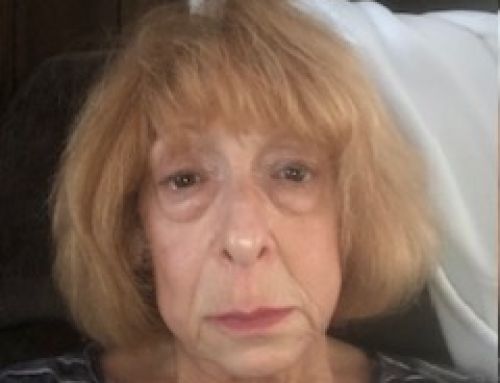Janice Rocco
California Department of Insurance
300 Capitol Mall Suite 1700
Sacramento, CA 95814
Mary Watanabe
Department of Managed Health Care (DMHC)
980 9th Street, Suite 500
Sacramento, CA 95814
Re: Discrimination against end-stage renal disease patients by Health Net
Dear Deputy Commissioner Rocco and Deputy Director Watanabe:
With 29,000 dialysis patient members, over 4,000 of whom reside in California, Dialysis Patient Citizens (DPC) is the nation’s largest patient-led organization representing individuals with end-stage renal disease (ESRD). On behalf of California’s 84,500 ESRD patients, I want to thank you for meeting with us to discuss the Health Net matter, which appears to be at the vanguard of industry-wide efforts to disenroll dialysis patients from health plans. We believe that singling out beneficiaries of charitable assistance for rescissions is a pretext for risk selection and constitutes unlawful discrimination as more fully set forth below.
I first want to respond to Health Net’s assertions regarding the CCIIO guidance on third party payments from providers to demonstrate why their interpretation of this guidance is self-serving and bogus.
I. Premium assistance from the American Kidney Fund does not equate to payments from providers.
On November 4, 2013, CCIIO stated: “It has been suggested that hospitals, other healthcare providers, and other commercial entities may be considering supporting premium payments and cost-sharing obligations with respect to qualified health plans purchased by patients in the Marketplaces. HHS has significant concerns with this practice because it could skew the insurance risk pool and create an unlevel field in the Marketplaces. HHS discourages this practice and encourages issuers to reject such third party payments.”
In a clarification issued February 7, 2014, CCIIO stated: “The concerns addressed in the November 4, 2013 FAQ would not apply to payments from private, not-for-profit foundations if: (a) they are described in Question 1 [i.e., governmental or tribal programs], or (b) if they are made on behalf of QHP enrollees who satisfy defined criteria that are based on financial status and do not consider enrollees’ health status.”
While provider companies contribute to AKF, the HHS Inspector General’s Advisory Opinion 97-1 held that those contributions “are not made to or on behalf of beneficiaries… [and] are not likely to influence patients to order or receive services from particular providers… [T]he coverage purchased by AKF will follow a patient regardless of which provider the patient selects… In sum, the interposition of AKF, a bona fide independent charitable organization, and its administration of HIPP provides sufficient insulation so that premium payments should not be attributed to the Companies.”
This is clearly distinguishable from the situation CCIIO’s original guidance was intended to address: hospitals or other facilities purchasing insurance for individuals to cover them for an acute episode during which they will receive inpatient treatment from the third-party payer. We believe the term “health status” refers to acuity and not to an underlying medical condition, as OIG’s approval of AKF’s premium assistance program was made with the understanding that eligibility was contingent on a “medical certification” as well as on financial need. Indeed we are aware of no foundations that support medical research or patient assistance that are organized on a basis other than medical condition.
CCIIO has issued no further clarifications on this subject despite entreaties to resolve the conflicts that the ambiguity has caused. We believe CCIIO has intentionally allowed this ambiguity to linger so as to reassure nervous insurers that, in the event that the exchanges “unravel” and become de facto high risk pools, the agency will accord them a new legal status of insurers of last resort. We observe that the California market appears to be in no such danger. Please note that CCIIO never ordered health plans to refuse premiums from foundations that the insurers choose to deem “healthcare providers.”
OIG has opined that, as a matter of law, contributions by providers to AKF are not payments from providers to purchase health insurance. While AKF and its provider-donors have submitted these questions to regulatory scrutiny, Health Net and other insurers have not. Instead, they are substituting their own legal opinion for OIG’s and acting unilaterally. Worse still, although their supposed grievance is with providers, they are rescinding coverage to patients who have no involvement with or knowledge of the donations. The OIG opinion is not an adjudication, so we do not suggest that no regulator or court could reach a different conclusion if shown evidence contradicting the facts upon which OIG based its holding. But we believe the OIG opinion is entitled to deference. If an insurer wants to deny coverage due to alleged illegal conduct, the proper procedure is to file a declaratory judgment action—refer to Century-Nat’l Ins. Co. v. Glenn, 104 Cal. Rptr. 2d 73, 76 (Ct. App. 2001) for an example of how such issues can be appropriately raised so as to accord due process to all parties.
II. Insurers’ refusal of third party premium payments from foundations is a pretext for risk selection and constitutes discrimination under federal and state law.
In refusing to accept third party premium payments from disease-related charities, insurers are using the source of the payment as a proxy for the disease and discriminating based upon the consumer’s health condition.
A. Guaranteed issue and non-discrimination provisions of federal and state law prohibit risk selection by insurers.
The starting point for legal analysis in the post-ACA era must be the guaranteed issue provisions of federal and state law. With regard to federal law:
42 U.S.C. § 300gg–1(a) provides that “each health insurance issuer that offers health insurance coverage in the individual or group market in a State must accept every employer and individual in the State that applies for such coverage.”
42 U.S.C. § 300gg–2(b) prohibits the non-renewal or discontinuance of coverage for any reason other than six defined circumstances, none of which relates to the source of premium payment.
42 U.S.C. § 300gg–4(a) provides that “A group health plan and a health insurance issuer offering group or individual health insurance coverage may not establish rules for eligibility (including continued eligibility) of any individual to enroll under the terms of the plan or coverage based on any of the following health status-related factors in relation to the individual or a dependent of the individual:
(1) Health status.
(2) Medical condition (including both physical and mental illnesses).
(3) Claims experience.
(4) Receipt of health care.
(5) Medical history.
(6) Genetic information.
(7) Evidence of insurability (including conditions arising out of acts of domestic violence).
(8) Disability.
(9) Any other health status-related factor determined appropriate by the Secretary.”
The analogous provisions of California law are Health and Safety Code § 1399.849(a)(1) which requires that plans “shall fairly and affirmatively offer, market, and sell all of the plan’s health benefit plans that are sold in the individual market for policy years on or after January 1, 2014, to all individuals and dependents in each service area in which the plan provides or arranges for the provision of health care services;” and § 1399.849(g)(1) which provides that “A health care service plan shall not establish rules for eligibility, including continued eligibility, of any individual to enroll under the terms of an individual health benefit plan based on any of the following factors:
(A) Health status.
(B) Medical condition, including physical and mental illnesses.
(C) Claims experience.
(D) Receipt of health care.
(E) Medical history.
(F) Genetic information.
(G) Evidence of insurability, including conditions arising out of acts of domestic violence.
(H) Disability.
(I) Any other health status-related factor as determined by any federal regulations, rules, or guidance issued pursuant to Section 2705 of the federal Public Health Service Act (Public Law 78-410).”
B. Health Net’s rescissions are motivated by risk selection, not by good faith concerns about improper donations.
Health Net’s actions must be viewed as part of an industry-wide campaign to disenroll dialysis patients from private health plans. Insurers’ bad faith is evident from the following facts:
- Although Health Net and others have cited CCIIO’s guidance relating to exchange plans, insurers have also been refusing payments for Medigap and COBRA plans.
- Some insurers that have refused to take charitable payments—notably Regence plans in the northwest—have also used other methods to try to force dialysis patients out of private plans and into Medicare. These have included (1) dropping dialysis clinics from their provider networks entirely; (2) treating in-network dialysis clinics as out-of-network providers after three months, unilaterally setting payments at Medicare levels and leaving consumers responsible for balances that do not apply against their out-of-pocket maximums; and (3) offering to pay Medicare premiums for patients who agree to switch coverage.
In each instance, insurers are resorting to “redlining” tactics—finding some proxy for health status that appears neutral on its face but that in practice applies exclusively or almost exclusively to dialysis patients. The two proxies being employed are the premium payments from charities and the ESRD population’s unique status as a group eligible for Medicare before turning age 65.
C. Medicare coverage does not suffice as a “Separate But Equal” option for dialysis patients.
There are significant legal and policy reasons to permit dialysis patients to retain their private coverage even after they become eligible for Medicare three months following their ESRD diagnosis.
The Social Security Act assures people whose kidneys fail that if they like their health plan they can keep it for at least for 30 months. This is often referred to as Medicare Secondary Payer (MSP) provision,1 or 30-month “coordination period,” and was clarified through the regulatory process as extending to exchange plans.2
Further, dialysis treatment is an “essential health benefit” (EHB) under California and federal law. While every person with ESRD becomes eligible for Medicare coverage, under the Social Security Act, ESRD patients are entitled to keep their group health insurance for at least 30 months. As such, the group health plans that become benchmarks for a state’s EHB—including the Kaiser small group HMO plan that is California’s benchmark—cover dialysis services, and their EHB benchmark designation extends this 30-month coverage mandate to the individual market.
As a small group plan, the California benchmark plan also incorporates by operation of law the parameters for ESRD coverage prescribed by federal Medicare Secondary Payer regulations pertaining to enrollees with ESRD. These include 42 CFR 411.161, “Prohibition against taking into account Medicare eligibility or entitlement or differentiating benefits,” which states that group plans “may not take into account that an individual is eligible for or entitled to Medicare benefits on the basis of ESRD during the coordination period… Examples of actions that constitute taking into account Medicare entitlement are listed in § 411.108(a).” The latter provision states, inter alia, that plans are prohibited from “imposing limitations on benefits for a Medicare entitled individual that do not apply to others enrolled in the plan, such as providing less comprehensive health care coverage, excluding benefits, reducing benefits…”
C.F.R § 156.125 specifies that a plan does not provide essential health benefits “if its benefit design, or the implementation of its benefit design, discriminates based on an individual’s age, expected length of life, present or predicted disability, degree of medical dependency, quality of life, or other health conditions.” Social Security Administration guidelines clearly state that people who rely on renal replacement treatment to live qualify as disabled.
The option to maintain private health coverage is important to ESRD patients for several reasons.
First, DPC’s 2015 Annual Membership Survey, conducted by the IPSOS international research firm, found that dialysis patients prefer private coverage. We asked several questions from the Consumer Assessment of Health Plan Survey (CAHPS) to gauge relative satisfaction with their coverage. We found:
- 77 percent of patients rate their private health insurance as the “best health insurance plan possible,” compared to 71 percent for Medicare.
- Medicare beneficiaries are more than twice as likely as private health plan members (13% versus 5%) to report having trouble getting health care that they wanted or needed.
- Medicare beneficiaries are more likely than private health plan members to report difficulties in getting the specific medication they need, difficulty getting someone on the phone to answer questions, and delays in receiving care or treatment.
Second, there is a significant financial advantage for dialysis patients to keep their private coverage. According the Bureau of Labor Statistics, the average private health insurance plan has an actuarial value of 88.9 percent, significantly higher than Medicare’s 80 percent. Health maintenance organizations—which are NOT available to ESRD patients through Medicare—have an average actuarial value of 91.8 percent. We further note that Medicare Savings Program assistance is not as generous to low-income patients as are subsidies in the exchanges for patients with income between 100% and 200% of the poverty line. For persons earning between $11,000 and $23,000 a year, the ACA guarantees that exchange health plans cover at least 87% of average medical expenses. Importantly, under the ACA, private health insurance plans have out-of-pocket maximums; fee-for-service Medicare does not. It is crucial for dialysis patients’ financial well-being that they retain equal access to private health insurance, especially in a state like California that does not give them access to Medigap supplemental coverage.
Finally, and most importantly, if a patient can lose coverage when his or her chronic kidney disease (CKD) progresses to end-stage renal disease (ESRD), an insurer has a perverse financial incentive not to take all possible measures to preserve the patient’s kidney functions. This is because CKD typically accompanies other co-morbidities, often making CKD patients more expensive than other enrollees. An insurer could off-load those expenses onto the Medicare program if the patient’s kidneys fail sooner rather than later. Further, an insurer with no financial stake in a patient’s well-being after onset of ESRD has no incentive to smoothly manage the transition from CKD to ESRD by obtaining a preemptive transplant if possible, creating a fistula for safe dialysis access and educating the patient about kidney failure in advance so he doesn’t “crash” into dialysis, resulting in infections and hospitalizations.
These perverse incentives are not present when plans must pay for renal dialysis for at least 30 months before Medicare becomes the primary insurer. And only a commercial insurer has both the incentive and the capability to properly prepare a patient for ESRD. The “Optimal ESRD Start” program pioneered by Southern California Kaiser Permanente represents the most sophisticated effort to manage the CKD-ESRD transition. While one would like to believe that an insurer would implement such a program in the absence of a requirement to continue coverage after kidney failure, no self-respecting health economist would bet on it.
The grim reality is that the right to maintain private coverage for 30 months beyond kidney failure would be illusory for many patients if not for the assistance in paying premiums offered by the American Kidney Fund. Kidney patients who’ve paid into the health insurance pool for decades as relatively healthy enrollees will too often, upon reaching ESRD, be unable to continue working and pay for insurance when they are most desperate to draw upon its benefits. AKF assistance performs a dual role of helping needy individuals and incentivizing commercial insurers to provide quality kidney care.
We are most appreciative of the quick action your agencies took in the face of the May 1 deadline, and of your pledges to further investigate this matter. Please let me know if I can provide further information.
Respectfully submitted,
Jackson Williams
Policy Director, Dialysis Patient Citizens
and
NAIC Funded Consumer Representative


